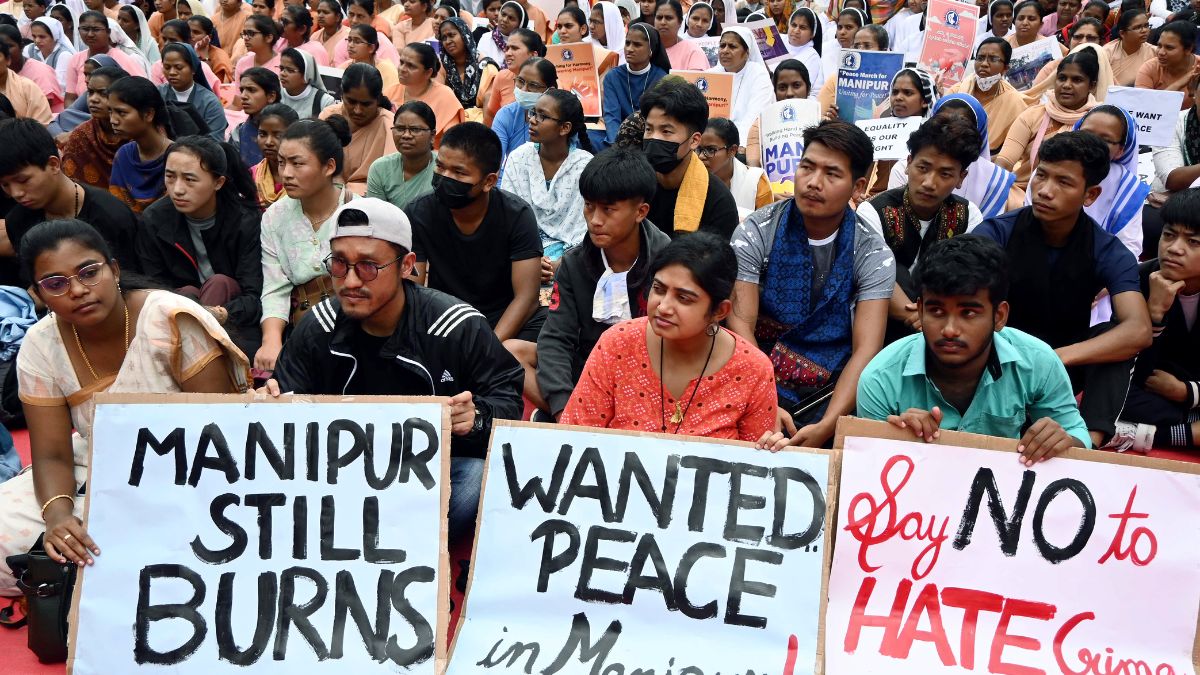Manipur's Kuki-Zo Crisis: A Plea for Separate Administration
The situation in Manipur is dire, with ethnic violence causing untold suffering. A Kuki-Zo delegation recently made a dramatic appeal to the Indian government, demanding a separate administration. This desperate plea shines a light on the deeply rooted issues and urgent need for a peaceful resolution. Are we witnessing the birth of a new state in the heart of Northeast India? Read on to find out!
The Kuki-Zo Council's Demand for a Separate Administration
The Kuki-Zo Council, the apex body representing the Kuki-Zo people, has officially requested the establishment of a separate administration. This isn't just a random demand; it's the culmination of years of conflict and simmering tensions between the Kuki-Zo and Meitei communities. Their request, presented to central government interlocutors, includes the initiation of a formal political dialogue to discuss the issues at hand. This escalation suggests previous attempts at negotiation have failed, bringing to the forefront the urgent need for concrete steps to address their grievances and avoid further escalation. The demand for dialogue highlights a critical need for the Indian government to truly engage with the needs and desires of this tribal group, potentially setting the stage for significant changes to the region's political landscape.
The Genesis of Conflict: A Look at the History
Understanding the current crisis requires delving into the history of conflicts in the region. Years of conflict and misunderstandings between the Meitei and Kuki-Zo communities, culminating in the present unrest, have made peace fragile. Violence has tragically claimed over 260 lives, leading to thousands being displaced from their homes. This tragic situation is not just about numbers, but a destruction of lives, culture and livelihood. This underscores the urgency of finding a lasting solution to these deep-seated issues. This recent move underscores the desperation among the Kuki-Zo community and the pressing need to bring meaningful progress to this conflict.
The Role of the Central Government and the Path Forward
The Indian central government is actively trying to bridge the divide. Recent meetings involving high-level representatives underscore the government’s recognition of the urgency of the crisis. However, the unwillingness of some parties to participate fully, including separate meetings for the Kuki-Zo and Meitei MLAs, highlights obstacles in achieving peace in Manipur. One of the major stumbling blocks appears to be differing viewpoints, primarily regarding the request of a separate administration, a complex issue likely requiring complex policy discussion.
Negotiation and Compromise: Essential Steps to Peace
Finding a mutually agreeable solution necessitates thoughtful discussion, genuine consideration of different perspectives, and creative strategies to find common ground. Given the depth and nature of the conflict, no simple solution exists; reaching a permanent and enduring settlement requires meaningful compromise. A robust approach that addresses the underlying reasons for division is paramount. The Kuki-Zo and Meitei people are inextricably linked, living in proximity, and a path that includes both communities will not be easy.
International Implications and the Search for Peace
The turmoil in Manipur carries international implications. The humanitarian crisis, ethnic tensions, and the risk of escalating violence raise concerns that extend far beyond the region. The need for swift and substantial action is pressing and further delay might have severe effects on regional stability, potentially escalating the conflict and leading to wider international condemnation of how the problem is addressed.
The Path to Lasting Peace
The solution lies in constructive dialogue and negotiations aimed at finding common ground, mutual understanding, and compromise, respecting the concerns of all parties. While difficult, the only viable option lies in addressing both sides' concerns effectively. Any plan for resolution needs to focus on peaceful co-existence, and measures promoting lasting peace need to be enacted urgently to ensure no recurrence of the crisis in future.
Take Away Points
- The Kuki-Zo people’s plea for a separate administration reflects a deep-seated crisis in Manipur.
- The central government’s role in mediating and facilitating a resolution is critical to preventing further escalation.
- The path to peace requires genuine dialogue, mutual understanding, and compromise from all parties.
- International implications highlight the urgency of addressing the conflict quickly and effectively.




